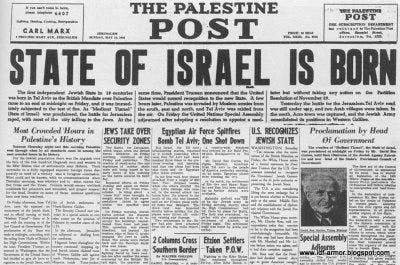Israel’s seventieth anniversary in 2018 was the occasion for a lavish reception in Washington. I was there because my late relative Marie Syrkin was being honored as one of seventy Americans whose engagement with Israel was deemed especially notable. Marie was a professor, a writer, and a close friend of Prime Minister Golda Meir, whose biography she had written.
On that day – May 14 – the United States embassy was officially moved from Tel Aviv to Jerusalem, a long-term goal of Israeli nationalists. It was also a day on which dozens of Palestinians were killed and hundreds were wounded in a clash with Israeli forces at the Gaza border.
Vice President Mike Pence was on hand to celebrate the embassy move. As I left (early), I wondered were Israel would be in five years – a major anniversary, a jubilee.
Since then, no need to exaggerate, the situation in Israel has become ever more complicated from the point of view of people like my cousin Marie, an ardent Zionist of the traditional sort, whose values were shaped by her friend Golda and other early Israeli leaders.
After finally outlasting the epithet at the United Nations and elsewhere that “Zionism is racism,” Israel has been deemed guilty by the legal definition of apartheid for its treatment of Palestinians in the territory it has occupied since its victory in the 1967 war with the surrounding Arab countries.
What has been simmering for some time – in 2006 Jimmy Carter published a book called Palestine: Peace Not Apartheid, which I thought went further than the facts – has now become accepted widely as a description of Israeli policies in public discourse and global forums.
Recently I attended, as publisher, an event at New York’s Central Synagogue for a new edition of a book called The Jewish American Paradox: Embracing Choice in a Changing World by the Harvard professor Robert Mnookin, an excellent assessment of the position of American Jews, including their now vexed relationship to what has happened to Israel’s politics.
What struck me most about his hour-long conversation with Rabbi Sarah Berman was that the Holocaust was never mentioned. In addition to this year being Israel’s seventy-fifth anniversary of statehood, this is now a full lifetime since the end of the Holocaust in 1945.
The establishment of Israel was the culmination of many factors, and one of them was certainly the fact that six million European Jews had been murdered, obliterating virtually an entire civilization. Israel was seen in some measure as compensation for that human catastrophe.
And now, as a factor in understanding the position of American Jews with respect to Israel, the Holocaust is not in the discussion. Instead, Israel is being widely accused of much of the same repression that Jews in pre-World War II Europe faced from fascism.
So what now? I thought.
The commemoration of Israel’s anniversary is a month away. In that time, the crisis over the overhaul of Israel’s judiciary – a symbol of its extreme shift to the right – will remain unresolved. The civic upheaval in the country is on an uneasy pause.
The sense is that some sort of compromise will be reached. Maybe. But over the decades since Prime Minister Yitzhak Rabin was assassinated by an Israeli from the far right, the country’s political agenda has shifted away from the possibility of a solution to the Palestine issues. The prospects now for some sort of two-state outcome and coexistence in the holy land are virtually nil.
Meanwhile, Israel has found willing business partners among the Arab autocracies in the Gulf and has built its own formidable economic base and a powerful security apparatus – funded and supported, as it happens, by the United States.
At Central Synagogue, one of the largest congregations of Reform Jews in the United States – Rabbi Berman is one of the synagogue’s eleven rabbis – a new thought occurred to me.
American Jews – and I am one who has lived through the entire period of Israel’s existence – are starting, possibly beyond starting, to feel the way that Cuban Americans feel about Cuba, Iranian Americans feel about Iran, and Vietnamese Americans feel about Vietnam. We, the roughly 2.4 percent of the country that is Jewish, have not been driven from a homeland (with the exception of the Soviet Jews arriving in the last fifty years) but are, nonetheless, called the “Diaspora,” which suggests a deep connection to a country where we do not live. We are in an era of the once inconceivable: A former president indicted on thirty-four felony counts. A Russia as repressive as it was in Soviet times. And American Jews, not all but likely a majority, once so proud of Israel yet now ashamed.
There has been a spiritual link to Israel that is profound. The Passover seders in which families gather to tell the story of Jewish freedom from Egyptian slavery end with the words “Next year in Jerusalem.”
In the annals of the turbulence, violence, and repression of Jewish history, the past seventy-five years have been an era of unique success for Jews in many ways. Watching what is happening in Israel inevitably leads to troubled concern by a great many people, including me, about what to expect in the years ahead.






Good piece - worrisome!
Well stated!